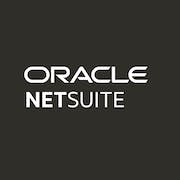Are you in search of the best shopping cart software? Our comprehensive buyers guide will help you find the perfect fit for your business. Explore top features and benefits now.
When it comes to running an online store, offering seamless and hassle-free shopping experiences to your customers is paramount. The types of software you use can make or break your business. With a wide range of shopping cart solutions available on the market, it can be challenging to know where to start. Each option offers different features, capabilities, and integrations, and making the right decision is critical to the success of your business. This buyer's guide will take you through the key considerations you need to make when selecting the right one, allowing you to make an informed decision that meets your needs and business goals.
What is shopping cart software?
This system, also known as ecommerce software, is a tool used by online retailers to manage their websites, transactions, and inventory. More specifically, it is a tool that allows customers to browse products, add them to a virtual shopping cart, and ultimately purchase them online. According to recent ecommerce software statistics, 14% of global B2B decision-makers plan to invest in ecommerce tools.
Its common use cases include, but are not limited to:
- Online retail stores selling physical products such as clothing, electronics, or furniture.
- Digital products such as downloadable software or music files
- Services such as booking appointments or classes online
- Non-profit organizations accepting donations or selling merchandise online
- Subscription-based businesses offering recurring payment plans
- Marketplaces with multiple vendors selling products on a single platform
What benefits does a shopping cart platform come with?
A shopping cart platform is the backbone of any successful e-commerce website. It not only helps to streamline the buying process but also simplifies the management of customer data. Here are some of the benefits of using it:
- Increased efficiency: It automates the ordering process, making it faster and more efficient. Orders are automatically logged, making it easier to track and manage customer orders, reducing time spent on manual data entry.
- Boost sales: It also provides a range of critical features that can boost sales, such as offering promotional codes, discount coupons, and gift cards. It gives an easy checkout process with multiple payment options, resulting in a higher conversion rate and increased sales.
- Customer management: The software keeps a database of customer information that enables businesses to manage their customers' buying habits and preferences effectively. With this data, they can offer personalized suggestions, enhance customer satisfaction, and increase sales.
- Inventory management: A shopping cart program allows businesses to manage their products and inventory easily. It can send out alerts when stock levels are low, and helps with the maintenance of accurate product information such as price, description, image, and availability.
- Scalability: Businesses with growth plans can benefit from ecommerce software as it can handle an increase in traffic and orders with ease without sacrificing performance.
10 key features of shopping cart technology
Ecommerce solutions come with several features that every online business can take advantage of. Here are the 10 common ones that you can look out for:
- Automatic calculation of shipping costs
- Secure data encryption and storage
- Integration with various payment gateways
- Customizable design and branding features
- Multi-currency support for international transactions
- Inventory management and tracking capabilities
- Sales tax calculation and reporting
- Customer relationship management tools
- User-friendly interface design for easy navigation
- Integration with shipping carriers for automatic label generation and tracking updates.
Key considerations when implementing a shopping cart system
With so many software options available on the market, it can be challenging to know which solution is the best fit for your business. In this segment, we will discuss the factors businesses should consider when making a purchasing decision about this tool:
1. Features:
Look for a system that provides essential features, such as customizable templates, multiple payment options, shipping integrations, and tax calculations. Other advanced features to consider include abandoned cart recovery, upselling/cross-selling options, and customizable checkout pages.
2. Ease of use:
An intuitive interface and user-friendly dashboard can save you time and money. Ensure that the solution you select is simple to set up, manage, and update. It should also provide detailed reporting and analytics, so you can measure your success.
3. Security:
Customers want to shop from a secure online store and feel confident that their information is safe. Choose one that offers secure checkout options and SSL encryption. Additionally, ensure it is PCI compliant to protect against fraud.
4. Integration:
Does the application integrate with other tools you already use, such as email marketing software or inventory management systems? This saves time and reduces the potential for errors when moving data between different software programs.
5. Scalability:
As your business grows, your needs will change. Ensure the ecommerce tool can accommodate increased traffic and sales volume without affecting performance or functionality.
6. Pricing:
There are many pricing models available, including monthly fees, transaction fees, and revenue sharing. Consider which model works best for your business and ensure there are no hidden fees or costs.
7. Support:
Look for a provider that offers support through multiple channels, such as live chat, phone, and email. You may also want to consider reading online reviews to see how responsive the support team is to customer inquiries.
Emerging trends for shopping cart software
In 2024 and beyond, ecommerce technology will continue to evolve and adapt to the changing needs of ecommerce businesses and their customers. Here are some of the biggest trends to watch out for:
#1. Headless commerce:
With the rise of omnichannel commerce and the need for personalized experiences, more and more businesses are adopting headless commerce, which separates the front-end (e.g., the website or app) from the back-end (e.g., the shopping cart system), allowing for greater flexibility in design and functionality.
#2. AI-powered recommendations:
To enhance the customer experience and increase sales, ecommerce tools with built-in artificial intelligence can analyze customer data to provide personalized product recommendations and upsell/cross-sell opportunities. A McKinsey survey found that 76% of consumers are more likely to purchase from brands that provide personalized communications and in response to this trend, shopping cart software platforms offer AI-powered features such as custom product recommendations, targeted marketing campaigns, and personalized checkout experiences.
#3. Mobile-first design:
As more consumers shop on their mobile devices, this package will continue to prioritize mobile-first design, ensuring a seamless and intuitive checkout experience on smaller screens.
#4. Flexible payment options:
With the growing popularity of buy-now-pay-later services and cryptocurrencies, this system will offer more flexible payment options to accommodate a wider range of financial preferences.
#5. Enhanced security:
With the growing threat of cybercrime, shopping cart apps will place greater emphasis on security features such as end-to-end encryption, two-factor authentication, and fraud detection.
By staying on top of these trends and choosing shopping cart software that aligns with your business needs and goals, you can ensure a seamless and successful ecommerce experience for both you and your customers.
Conclusion
In conclusion, selecting the right shopping cart software is a critical step in establishing a successful online store. By carefully evaluating your business needs, budget, and the specific features offered by different platforms, you can choose a solution that enhances customer experience, streamlines operations, and supports your long-term growth. Investing time in making an informed decision will pay off in creating a robust, user-friendly, and secure online shopping environment for your customers.








